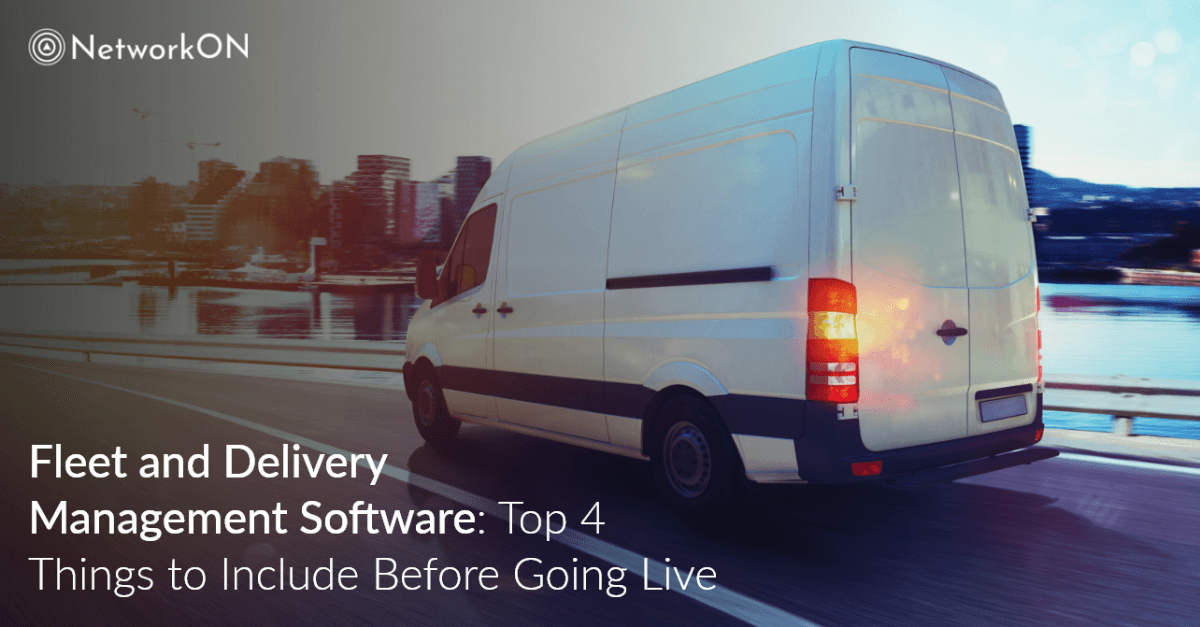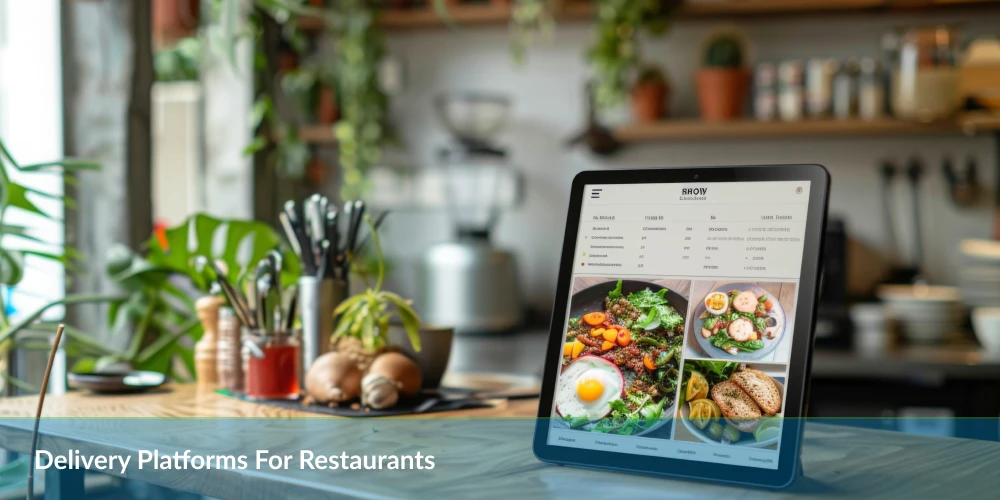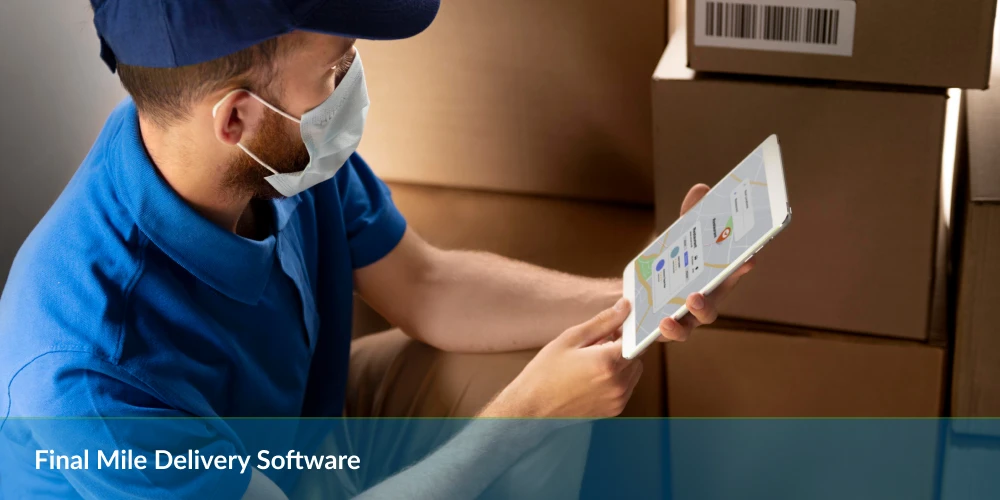Table of Contents
Transportation and logistics have a rather peculiar trait. You have data of hundreds of staff & customers and all of it needs to be taken care of in real-time. In short, even a small error can cause several issues.
Here, going slow might make you look like an underdog while moving too fast might put your fleet in an unimaginable mess. This line-of-business is agile and the set templates for other businesses in the world do not apply here.
To cope up with the ongoing challenges, logistics and transportation companies need to upgrade their business in every essence. Not only does it include the vehicles in their fleet, but it also extends to the software they are using.
Amidst the rush of processing hundreds or thousands of orders everyday, it is not difficult to make a few errors when managing everything manually. The biggest advantage major logistics companies have is their ability to adapt and upgrade to automated systems with time.
So, it brings us to the question ‘What features should be there in an ideal fleet management software?’. In the following lines, we will take a look at them and then help in getting started on the right track.
Let’s begin.
1. End-to-End Management of Driver Fleets
Driver performance is the most important factor in a delivery service business and it is imperative that you monitor them regularly to ensure efficient performance all around. Onboarding the fleet on a delivery management system only makes things better.
You can assign KPIs for all riders, track the miles covered, count the number of deliveries made and the amount of time spent in completing the said tasks.
Besides speedy deliveries, careful assessment is important to ensure no fraud in claiming compensations. Here, reporting tools integrated with the delivery management system help to capture real-time data and analyze it accurately.
In a nutshell, fleet management software adds a great amount of convenience to the delivery operations. Another plus side is that you can create feedback in a few easy steps and keep your teams engaged and informed to be in top performance.
Here are a few key features that you must consider when upgrading your fleet management software:
- Automated delivery scheduling
- Revenue tracking and generating financial reports
- Monitoring driver performance and monitoring driving patterns
- Addressing customer complaints and queries
- Smart route optimization for delivery fleet resources
Automated processes and optimal delivery routes ensure best performance of every delivery run and adds to the overall productivity of the fleet.
2. Managing Crowdsourced Delivery
Online sales are at an all time high and customers prefer to browse through hundreds of products before making a purchase. Even leading brands understand their customers’ needs and are gradually transitioning towards crowdsourced delivery management software platforms.
About 90% of businesses are expected to adapt Crowdsource Delivery by 2028.
Zebra.com
How does Crowdsource Delivery Work?
Here, the customer places an order for a product they like on a particular website. The website informs the fulfillment partner about the order that has been placed along with instructions for fulfillment. Next, the fulfillment partner assigns a delivery resource or agent to pick the product from the said store and delivers it directly to the customer.
Crowdsourced delivery software applications are gaining popularity in the grocery and food delivery domain. For example, all food delivery applications that work as an interface between the customer and the partner restaurant use a crowdsourced model.
It is like Uber, the world’s largest cab aggregator that doesn’t own a single vehicle in their fleet. In the food business, aggregator apps tie-up with restaurants and receives orders on their behalf. The user orders from the preferred restaurant and informs the aggregator app to deliver.
Why is crowdsourced model a success?
There are many reasons to love the crowdsourcing model. Some of them are listed below:
- Helps retailers in saving time and resources
- Cuts costs
- Enables on-demand delivery with scheduling capabilities
- Improves the efficiency of the entire supply chain
Your fleet management software should help you be scalable enough to integrate with crowdsource delivery capabilities leaving possibilities to generate more revenue in the future.
3. Scalability and On-Demand Expansion
One of the most interesting things about delivery businesses is that they can experience propelling growth overnight. Even if you have rapid expansion plans beforehand, it is the execution that matters.
The biggest challenge here is to prepare your fleets accordingly. Food delivery businesses are the fastest-growing segment in this line-of-business and are constantly striving to hone their fleet management capabilities.
The global online food delivery services market size is expected to grow at a compound annual growth rate (CAGR) of 15.4% from 2019 to 2025.
Grandview Research
Key focus areas to ensure fleet platform scalability include:
- Corroborating every delivery run in real-time and data management
- Calculating the number of orders delivered in every delivery run
- Evaluating rider’s performance and their reliability on the road
- Checking compliance for route optimization instructions
The best fleet management software is the one that offers options to scale your business. It has to be robust and flexible at the same time. So, make sure that the tool you choose goes well beyond releasing instructions to the drivers and augmentis latest features.
Not to miss, various delivery features can be included or excluded on demand without causing any major interruptions in the ongoing processing.
How can a scalable powerful fleet management platform help?
- Onboarding new fleet members and familiarizing them with the same platform.
- Hiring new contractors with ease
- Adding pick up and drop off locations using exact locations from google maps and other maps applications
- Introducing premium services to keep the customer engaged
Delivery management platform development services need to have a bigger picture in mind and not confine themselves to short-term goals. Sooner or later, every business would like to expand and you should choose a solution with that very target.
Your future growth depends on automation and the latest technologies. Make sure you stay up-to-date with all of them.
4. Route Optimization: Planning the Best Route
Route Optimization software is one of the key features of a successful delivery management business. Likewise, logistics fleet management tools use smart and automated route optimization capabilities. This functionality identifies the shortest route in a fraction of seconds, and the delivery teams benefit directly from it.
A route optimization application suggests the optimal route based on various metrics like, traffic congestion, road block due to accidents, repair and maintenance tasks.
Route optimization is also useful when dealing with last minute changes in the delivery route and location. Your fleet can receive updated delivery location and an optimized route with simple push notifications. So, with the right tool, your last mile delivery hassles can be a thing of the past.
Wrapping Up
As the world moves towards a stronger eCommerce economy, the purchasing habits of customers will change as well. Having an online presence is not enough if you want to generate more revenue for your business.
You can get lost in the shuffle by selling through existing, crowded eCommerce platforms or create your own identity by starting one of your own. Bring together more sellers, create and manage your delivery fleets and improve your bottom line drastically today.
To know more about getting started with a delivery management system, get in touch with our team of experts today. NetworkON is always free to start and allows you to launch your brand using bespoke designs and a host of robust features in the mix.
Let’s get in touch. For more information, email us at info@networkon.io or visit our website.





Jeffrey J. McClendon
This checklist is very practical for companies preparing new systems. An AI-powered fleet management platform should always include GPS tracking, customizable route planning, predictive maintenance modules, and clear analytics dashboards. I came across this recognition: https://mobisoftinfotech.com/resources/media/fleetnxt-2-0-recognition-leading-media-coverage . It shows how platforms with strong fundamentals are gaining market attention. Which matters more before launch—robust analytics or maintenance tools?